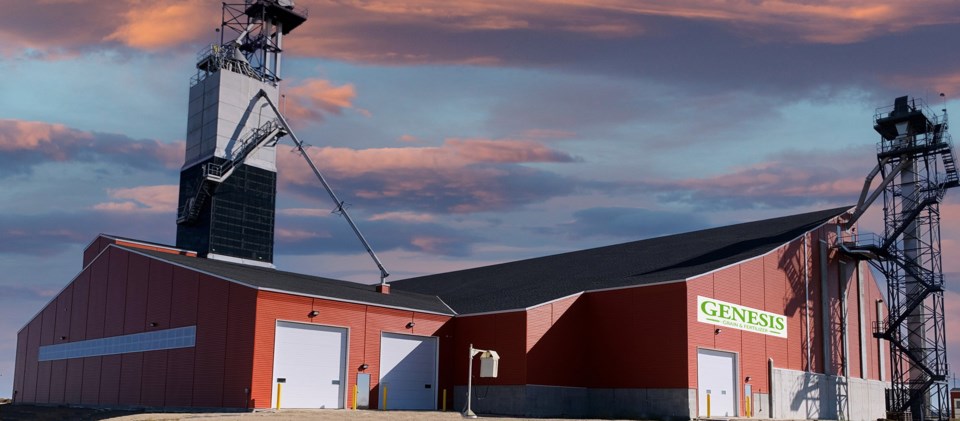A new fertilizer plant planned for Saskatchewan points to the fundamental role of the province’s natural resource and agriculture sectors in local the province’s industrial development.
The urea fertilizer plant is planned for Belle Plaine, a small community 21 km east of Moose Jaw on Highway 1. The announcement is the culmination of two years of discussions between senior representatives of the provincial government and Genesis Fertilizers LP, a farmer-owned company headquartered in Saskatoon.
“Farmers across Canada, together with our management team, have been looking for the right opportunity to move this project forward,” said Jason Mann, president of Genesis, in making the announcement. “The Saskatchewan Government's commitment to creating a competitive business environment with a strong suite of incentives will support the agriculture sector and help this project address the challenge of high fertilizer prices.”
Those incentives include the Saskatchewan Value Added Agriculture and Saskatchewan Chemical Fertilizer tax incentives. The latter is a non-refundable, non-transferable 15 per cent tax credit on capital expenditures valued at $10 million or more for new or expanding production facilities.
Genesis said it has secured site for the plant in Belle Plaine that gives it ready access to gas, water, power, road and rail connections.
The plant will have a production capacity of 700,000 metric tonnes of fertilizer a year and supply a network of six distribution facilities across the Prairies. The majority will be contracted by the plant's farmer-owners while a quarter will be offered to the market.
The ownership structure will give about 1,500 farmers a direct stake in the business, related to their share of the plant’s production. To date, 300 have signed on as backers of the project.
“[It’s] a very tight closed-loop business model in which they receive the net profits from the fertilizer they use,” explains Barrie Mann, vice-president, investor relations with Genesis.
In addition, approximately $100 million will be sought from strategic, institutional investors.
But the project is by no means a sure thing. The company has yet to raise the capital and perform the design work needed to proceed with construction. Design work will take a year, and construction is anticipated to take 32 months. ThyssenKrupp has been retained to oversee plant construction while Stantec is the engineering firm retained for the project.
“Our goal is proceed diligently to ensure the project continues at a steady pace,” Barrie Mann said.
The plant is one of a number of recent announcements pushing investment in the province’s agri-food sector to record levels.
Constraints on fertilizer supplies out of Ukraine, Russia and China have prompted BHP to accelerate the launch of its new potash mine at Jansen, tipped as the largest investment in Saskatchewan history with a project cost of $12 billion.
K+S Potash Canada is also increasing output at its mine in Bethune, while Nutrien Ltd. plans to increase production by 40 per cent over 2020 levels by 2025.
The investments go hand-in-hand with grain and oilseed production, with several entities planning processing facilities in southern Saskatchewan.
Federated Co-operatives Ltd. plans a $2 billion Integrated Agriculture Complex in Regina, undertaken in partnership with AGT Foods. It will have facilities to crush canola and produce biodiesel. They’re among six projects expanding processing capacity in the area, including Cargill’s new $350 million crush facility at the Global Transportation Hub west of Regina.



